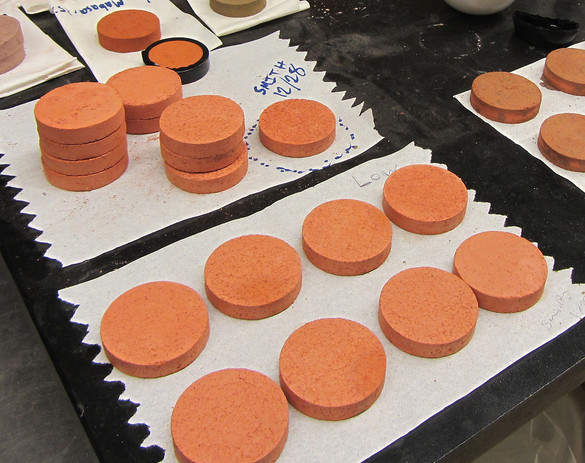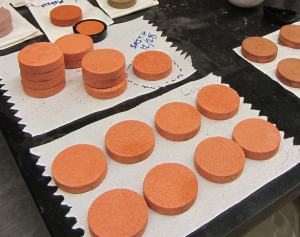MadiDrop is the name. Water purification is the game.
What is it? Who invented it? How does it work?
MadiDrop is a small ceramic disk (see image below) containing either silver or copper nanoparticles.
It is a product of PureMadi, a non-profit organization associated with the University of Virginia. PureMadi is not just developing the MadiDrop. They have also created a flower-pot size water filter that serves a family of five for 2 to 5 years before needing replacement.
With MadiDrop you can use any container. Just drop the tablet in and fill it up. Leave it overnight and the next morning the water is safe to drink. A tablet is capable of treating 20 liters of water daily. Although trace amounts of silver and copper nanoparticles do get released the levels are very low and considered safe for human consumption, but not for the micro-organisms lurking in the water. They are killed. A single MadiDrop can be used to disinfect water for up to six months.
Access to safe drinking water is an increasing problem in much of the world. With a population of over 7 billion today it is hard to believe that only 2 billion of us have access to high-quality, regulated clean water sources and that 3 to 4 million die each year of waterborne diseases.
MadiDrop is being tested in South Africa. The plan is to begin manufacturing in that country and then expand to others across Africa and Asia. The hope is to drive the price down to $5.00 per disk.










